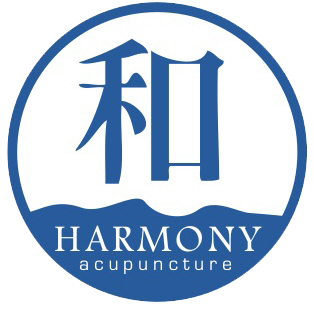1. What is acupuncture, and how does it work?
Answer: Acupuncture is a healing technique that involves inserting very thin, sterile needles into specific points on the body, called acupoints. It began in China over 2,000 years ago as one of 5 branches of Chinese Medicine but spread across Asia and the rest of the world. I learned Japanese, French Meridian Trigger Point, and 5 Element (created by an Englishman) Acupuncture as well as Traditional Chinese Medicine Acupuncture.
Traditional perspective: It's believed that an energy or life force called "Qi" (pronounced "chee") flows through pathways in the body called meridians. When Qi is blocked or imbalanced, illness or pain can result. Acupuncture aims to restore the free flow of Qi, thus promoting natural healing.
Western medical perspective: While the exact mechanisms are still being researched, studies suggest acupuncture may work by stimulating nerves, muscles, and connective tissue. This can lead to the release of the body's natural painkillers (endorphins) and other neurochemicals that influence the nervous and immune systems, reduce inflammation, and improve blood flow.
2. Does acupuncture hurt?
Answer: Most people experience little to no pain. Some men have even fallen asleep while I am still in process of inserting needles! Acupuncture needles are extremely thin – about the width of a few strands of hair – much finer than needles used for injections or blood draws.
You might feel a tiny prick or a mild sensation like a dull ache, tingling, warmth, or heaviness when the needle is inserted or when the acupoint is activated (a sensation often called "de qi"). This sensation is usually brief and fades quickly. If you smoke, drink caffeine or are feeling very stressed before acupuncture, you may feel more pain with needle insertion.
Many patients find the experience very relaxing, and many even fall asleep during treatment. If you are particularly sensitive or nervous, let your practitioner know, as they can adjust their technique.
Still don’t like needles: I offer many other types of treatments:
3. Is acupuncture safe? Are there any side effects?
Answer: Yes, acupuncture is generally considered very safe when performed by a licensed and experienced practitioner using sterile, single-use needles.
Common, mild side effects: Slight bruising or minor soreness at the needle insertion sites or a temporary feeling of fatigue or lightheadedness. These usually resolve quickly. Fainting is possible. It is really important to make sure you are hydrated and have eaten enough before acupuncture to keep blood sugar at normal level.
Rare, more serious risks: Infection (extremely rare with sterile, single-use needles), nerve damage, or organ puncture (also extremely rare when performed by a qualified professional). No one I have treated has reported any of these.
Important considerations: Inform your acupuncturist if you have a bleeding disorder, are taking blood thinners, have a pacemaker (as electroacupuncture might interfere), or are pregnant (as some points can stimulate labor).
4. What conditions can acupuncture treat?
See Conditions
5. How many sessions will I need, and how often should I come?
Answer: The number and frequency of sessions vary greatly depending on the condition being treated, its severity, and your individual response. General rule of thumb is 1 treatment for every month you have had a condition. For conditions 10 months or longer, I suggest coming for 10 sessions and then re-assess. You may feel better before 10 sessions, but usually do not last at first.
Acute conditions (recent onset): You might see results relatively quickly, in as little with 1-2 sessions.
Chronic conditions (long-standing): These typically require more consistent treatment, often 1-3 sessions per week for 4-6 weeks initially, followed by a gradual reduction in frequency as symptoms improve.
Maintenance: Many people continue with occasional sessions (e.g., monthly or quarterly) for preventative care or to manage chronic issues.
I can develop a personalized treatment plan and discuss expected timelines with you.
6. What should I expect during a typical acupuncture session?
Answer:
First visit: This is usually longer (1.5-2) and involves a comprehensive intake. I ask detailed questions about your health history, lifestyle, symptoms (including seemingly unrelated ones like sleep, digestion, and emotions), and may perform traditional diagnostic methods like tongue and pulse examination.
Follow-up visits: These are typically shorter (45-75 minutes). You'll lie comfortably on a treatment table. The acupuncturist will insert the fine needles into specific points. The needles are usually left in place for 15-30 minutes while you relax. I may use other techniques like cupping, Gua Sha, essential oils, or electroacupuncture if indicated and you agree.
What to wear: Loose, comfortable clothing that allows easy access to your arms, legs, back, or abdomen is best. I can provide a drape if clothes are too restrictive.
7. Should I do anything to prepare for an acupuncture session?
Answer:
Eat a light meal: Avoid coming on an empty stomach, as this can increase the risk of dizziness or lightheadedness.
Stay hydrated: Drink plenty of water.
Avoid caffeine and alcohol: It's often recommended to avoid these immediately before and after a session, as they can interfere with your body's response.
Wear loose clothing: As mentioned above.
Don't brush your tongue: For your initial visit, your acupuncturist may want to examine your tongue for diagnostic purposes.
Be ready to relax: Try to avoid stressful activities immediately before or after your appointment.
8. What should I do after an acupuncture session?
Answer:
Rest and relax: Many people feel a deep sense of calm or fatigue. Listen to your body and allow for rest if needed.
Stay hydrated: Continue to drink water.
Observe your body: Pay attention to any changes in your symptoms or overall well-being. This feedback is helpful for your next session.
Avoid strenuous activity: For a few hours after, avoid heavy exercise, very stressful situations, and doing anything that makes your condition worse (i.e., going shopping at Costco if you have back pain make worse by walking or standing or hard surfaces)
Mild soreness or bruising: This is normal at the needle sites and usually resolves quickly. A warm compress can help if needed. If your muscles twitched from Dry Needling/Trigger Point Release or with Electricity on Motor Points, the treated muscle may feel a workout type ache a few hours later, that may last a few hours. You can gently massage or apply topical pain relief
9. Does my insurance cover acupuncture?
Answer: I do NOT accept insurance. I can provide a Superbill for you to submit to Insurance, Coverage for acupuncture varies widely by insurance plan and provider. It's essential to:
Contact your insurance company directly before your first appointment to inquire about your specific benefits.
Ask about any limitations, such as out of network coverage, the number of sessions covered, specific conditions covered, or if a referral is required.
NOTE: I DO ACCEPT payments from the Veterans Administration.
10. Is Acupuncture eligible for HSA or FSA?
Answer: Yes it is and I can provide a receipt. I do not take credit cards so I am not able to accept HSA card payments.
If you have any other questions, please call me at (434)242-8305 or email.
Frequently Asked Questions

Make it stand out.
-

Dream it.
It all begins with an idea. Maybe you want to launch a business. Maybe you want to turn a hobby into something more. Or maybe you have a creative project to share with the world. Whatever it is, the way you tell your story online can make all the difference.
-

Build it.
It all begins with an idea. Maybe you want to launch a business. Maybe you want to turn a hobby into something more. Or maybe you have a creative project to share with the world. Whatever it is, the way you tell your story online can make all the difference.


